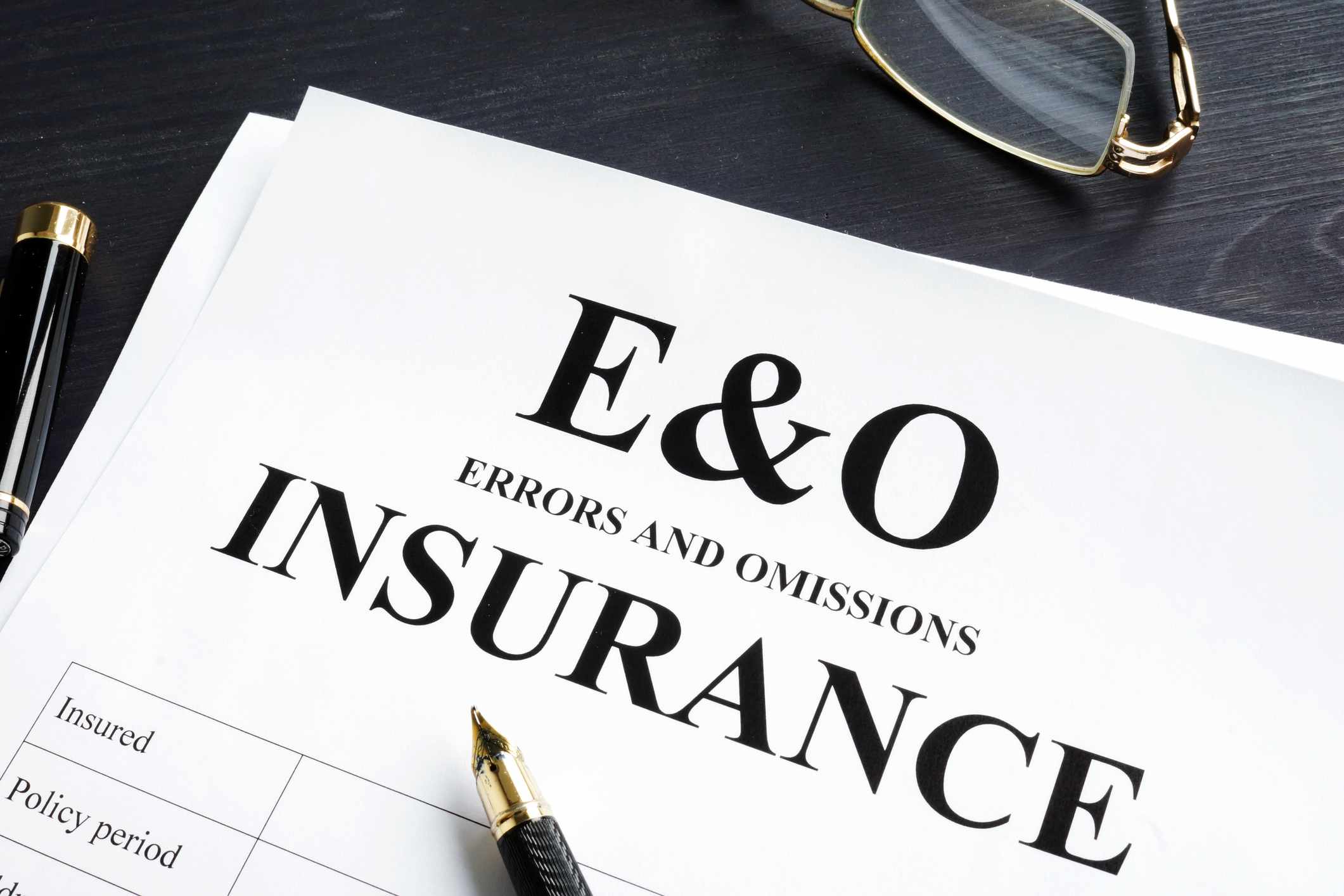

Finance
What Is Corporate Insurance?
Published: November 21, 2023
Discover the importance of corporate insurance in the world of finance and how it safeguards businesses against potential financial risks and liabilities.
(Many of the links in this article redirect to a specific reviewed product. Your purchase of these products through affiliate links helps to generate commission for LiveWell, at no extra cost. Learn more)
Table of Contents
Introduction
Welcome to the world of corporate insurance—a crucial aspect of financial management for businesses of all sizes. In today’s volatile and uncertain business environment, protecting one’s assets and mitigating risks have become top priorities for companies across various industries. Corporate insurance serves as a safeguard, providing financial protection against potential losses resulting from unforeseen events or liabilities.
Corporate insurance is a comprehensive risk management strategy that helps businesses navigate the complex landscape of potential risks and liabilities they may face. These risks can include property damage, liability claims, employee injuries, business interruption, and much more. By having the right corporate insurance coverage in place, companies can minimize financial losses and safeguard their assets, allowing them to focus on their core operations without worrying about unexpected risks.
As the saying goes, “Hope for the best, but prepare for the worst.” This mantra encapsulates the essence of corporate insurance. While no business owner wants to encounter adverse events or liabilities, it is crucial to be well-prepared for such situations. Insurance can offer a sense of security and stability, assuring business owners that they have a safety net to fall back on when faced with unexpected challenges.
Corporate insurance is not a one-size-fits-all solution. Every business has its unique risks and requirements, making it essential to tailor insurance policies to address specific needs. Working with a knowledgeable insurance broker or consultant can help businesses identify their vulnerabilities and customize insurance programs that meet their individual risk management goals.
In this article, we will delve deeper into the world of corporate insurance. We will explore the different types of corporate insurance available, discuss the importance of having corporate insurance coverage, highlight the key benefits it provides, and provide some best practices and considerations for businesses to keep in mind while choosing and managing their insurance programs.
Definition of Corporate Insurance
Corporate insurance, also known as business insurance or commercial insurance, is a type of insurance coverage specifically designed to protect businesses from potential financial losses resulting from various risks and liabilities. It provides businesses with financial compensation or reimbursement in the event of covered losses, allowing them to mitigate the potential impact on their operations and bottom line.
Corporate insurance is a broad term that encompasses a wide range of insurance products and policies. These policies can cover different aspects of a business, including its physical assets, liability exposures, employees, and even intangible assets like intellectual property or cyber risks.
Some of the most common types of corporate insurance include:
- Property Insurance: Protects a business’s physical assets, such as buildings, equipment, inventory, and furniture, from damage or loss due to events like fire, theft, vandalism, or natural disasters.
- Liability Insurance: Covers the costs associated with legal claims and lawsuits against a business for injuries, property damage, or other liabilities arising from its operations.
- Workers’ Compensation Insurance: Provides coverage for employee injuries or illnesses resulting from work-related activities. It covers medical expenses, rehabilitation costs, and lost wages for the injured employee.
- Business Interruption Insurance: Protects against income losses and additional expenses when a business is unable to operate due to covered events, such as a fire, natural disaster, or other unforeseen circumstances.
- Professional Liability Insurance: Also known as Errors and Omissions insurance, this coverage protects professionals (e.g., doctors, lawyers, consultants) against claims of negligence or errors in their professional services.
- Cyber Insurance: Provides coverage for losses resulting from data breaches, cyber-attacks, and other cyber risks. It helps businesses cover expenses related to data recovery, legal fees, customer notification, and potential liability claims.
These are just a few examples of the many types of corporate insurance available. The specific needs and risks of a business will determine the types of insurance coverage required.
When businesses purchase corporate insurance policies, they pay premiums to the insurance provider. In return, the insurance company assumes the financial risk associated with potential covered losses. If a covered loss occurs, the insured business can make a claim against the policy to receive financial compensation or reimbursement up to the policy’s limits and terms.
It is important for businesses to carefully review their insurance policies, understand the coverage limits and exclusions, and work closely with insurance professionals to ensure they have the appropriate level of coverage to protect their assets and manage their unique risks.
Types of Corporate Insurance
Corporate insurance encompasses a wide range of coverage options, tailored to address different risks and liabilities faced by businesses. Understanding the various types of corporate insurance can help businesses identify their specific needs and select the most suitable coverage. Here are some common types of corporate insurance:
- Property Insurance: This type of insurance protects businesses against the loss or damage of their physical assets, including buildings, equipment, inventory, and furniture. It typically covers risks such as fire, theft, vandalism, and natural disasters.
- General Liability Insurance: General liability insurance provides coverage for third-party claims related to bodily injury, property damage, and advertising or personal injury. It protects businesses from potential lawsuits and the associated legal costs.
- Professional Liability Insurance: Also known as errors and omissions insurance, this coverage is crucial for professionals such as doctors, lawyers, consultants, and architects. It protects against claims of negligence or errors in their professional services.
- Workers’ Compensation Insurance: Workers’ compensation insurance is a legal requirement in many jurisdictions. It provides coverage for employees who suffer work-related injuries or illnesses. It covers medical expenses, rehabilitation costs, and lost wages for the injured employees.
- Commercial Auto Insurance: Businesses with company-owned vehicles or employees using their personal vehicles for business purposes should have commercial auto insurance. This coverage protects against liabilities arising from accidents involving company vehicles.
- Business Interruption Insurance: This insurance provides coverage for businesses when they are unable to operate due to covered events such as fire, natural disasters, or other unforeseen circumstances. It compensates for lost income and helps cover ongoing expenses during the interruption period.
- Cyber Insurance: With the increasing risk of cyber threats, businesses need protection against data breaches and cyber-attacks. Cyber insurance provides coverage for expenses related to data recovery, legal fees, customer notification, and potential liability claims.
- Directors and Officers (D&O) Insurance: D&O insurance offers financial protection to directors and officers of a company in the event they are sued for alleged wrongful acts in their capacity as company leaders. It helps safeguard personal assets and provides coverage for legal defense costs.
These are just a few examples of the many types of corporate insurance available. The specific needs of a business will determine the types of coverage required. It’s important for businesses to assess their risks and consult with insurance professionals to determine the optimal insurance portfolio that protects their assets and mitigates potential liabilities.
Importance of Corporate Insurance
Corporate insurance plays a crucial role in the financial management and risk mitigation strategies of businesses. Here are some key reasons why corporate insurance is important:
- Financial Protection: One of the primary reasons businesses invest in corporate insurance is to protect their financial interests. Insurance coverage can help mitigate the financial impact of potential risks, such as property damage, legal claims, or business interruptions. It provides businesses with the necessary funds to recover and continue operations in the face of adversity.
- Risk Management: Corporate insurance is an integral part of a comprehensive risk management strategy. By identifying potential risks and obtaining appropriate insurance coverage, businesses can transfer some of the risks to the insurance provider. This allows companies to focus on their core operations with greater confidence, knowing that they have a safety net in place.
- Compliance with Legal Requirements: In some jurisdictions, certain types of corporate insurance, such as workers’ compensation insurance, are legally required for businesses. Compliance with these regulatory requirements is essential to avoid penalties or legal issues. Having the necessary insurance coverage ensures that businesses meet their legal obligations and protect their employees.
- Business Continuity: Unexpected events, such as natural disasters or accidents, can disrupt business operations. Corporate insurance, particularly business interruption insurance, helps businesses manage the financial fallout during the downtime. It compensates for lost income, covers ongoing expenses, and facilitates a smooth transition back to full operation.
- Protection of Assets: Businesses often have significant investments in physical assets, intellectual property, and technology infrastructure. Corporate insurance, such as property insurance and cyber insurance, safeguards these assets against risks, including theft, fire, vandalism, or cyber-attacks. Insurance coverage ensures that businesses can recover or replace these assets without suffering substantial financial losses.
- Enhanced Reputation and Confidence: Having comprehensive corporate insurance coverage can give businesses a competitive edge and enhance their reputation in the eyes of customers, partners, and investors. It demonstrates a commitment to risk management and responsible business practices, instilling confidence in stakeholders that the business is prepared for unforeseen challenges.
Overall, corporate insurance serves as a critical tool for businesses to manage risks, protect their financial interests, and ensure business continuity. It provides peace of mind and a level of security, allowing businesses to focus on their growth and success while minimizing potential setbacks.
Benefits of Corporate Insurance
Corporate insurance offers several benefits to businesses, providing them with financial protection, risk management, and peace of mind. Here are some of the key benefits of having corporate insurance:
- Financial Security: Corporate insurance provides businesses with the financial means to recover from unexpected events or liabilities. Whether it’s property damage, a lawsuit, or a business interruption, insurance coverage ensures that businesses have the necessary funds to cover the associated expenses and keep their operations running smoothly.
- Risk Transfer: By obtaining insurance coverage, businesses transfer some of their potential risks to the insurance provider. This allows companies to focus on their operations, knowing that they have a safety net in place. Instead of bearing the full financial impact of a loss, businesses share the risk with the insurance company, minimizing their exposure.
- Business Continuity: In the face of unexpected events, such as natural disasters or accidents, corporate insurance, particularly business interruption insurance, ensures that businesses can continue their operations. It provides compensation for lost income, covers ongoing expenses, and helps businesses recover and resume their activities with minimal disruption.
- Protection of Assets: Corporate insurance safeguards businesses’ physical assets, intellectual property, and technology infrastructure. Whether it’s property insurance protecting against fire or theft or cyber insurance covering data breaches, the insurance coverage ensures that businesses can recover or replace their assets without incurring significant financial losses.
- Employee Protection: Corporate insurance, such as workers’ compensation insurance, is not only essential for legal compliance but also protects employees in case of work-related injuries or illnesses. It covers medical expenses, rehabilitation costs, and lost wages, providing financial support to employees during difficult times.
- Legal Liability and Lawsuit Coverage: Liability insurance, like general liability and professional liability, protects businesses from legal claims and the associated costs. In the event of bodily injury, property damage, or allegations of negligence, insurance coverage helps cover legal fees, settlements, and damages, safeguarding businesses from substantial financial burdens.
- Peace of Mind: Perhaps one of the most significant benefits of corporate insurance is the peace of mind it brings to business owners and stakeholders. Knowing that there is a safety net in place and a financial cushion to rely on in times of crisis allows businesses to navigate uncertainties with confidence and a sense of security.
Corporate insurance is an investment in the stability and long-term success of a business. It mitigates financial risks, protects assets, ensures compliance with legal requirements, and provides businesses with the necessary support to overcome challenges and continue their growth trajectory.
Key Considerations for Corporate Insurance
When selecting and managing corporate insurance coverage, businesses should take certain key considerations into account. These considerations can help ensure that businesses have the right insurance policies in place to address their specific needs. Here are some important factors to consider:
- Risk Assessment: Conduct a thorough risk assessment to identify all potential risks and liabilities faced by the business. This assessment should evaluate both internal and external risks, such as property damage, legal claims, employee injuries, and cyber threats. Understanding the specific risks the business is exposed to will help determine the necessary insurance coverage.
- Insurance Needs Analysis: Based on the identified risks, analyze the business’s insurance needs. Consider the types and amounts of coverage required to adequately protect against potential losses. Collaborate with insurance experts or brokers to assess the business’s unique needs and determine the appropriate insurance programs.
- Policy Coverage and Exclusions: Carefully review the details of insurance policies, including coverage limits, deductibles, and exclusions. Ensure that the policy covers the specific risks relevant to the business and that there are no significant gaps in coverage that may leave the business exposed to financial losses. Pay attention to exclusions that may impact certain types of claims or circumstances.
- Policy Limits and Deductibles: Evaluate the policy limits and deductibles to ensure they align with the business’s risk tolerance and financial capabilities. Choose limits and deductibles that strike a balance between premium costs and adequate coverage. Consider the potential financial impact of a loss and choose policy limits that would sufficiently protect the business’s assets.
- Insurance Provider Reputation: Research the reputation and financial stability of insurance providers. Look for established and reputable insurance companies with a track record of reliable and timely claims settlement. Verify the financial strength ratings of potential insurance providers to ensure their ability to fulfill their obligations in the event of a claim.
- Cost and Value: Consider the cost of insurance premiums relative to the value and coverage provided. While it’s important to manage costs, prioritizing the quality and adequacy of coverage should be the primary focus. Assess the value of the insurance coverage in terms of the financial protection it offers and the potential losses it can help mitigate.
- Review and Update: Regularly review and update insurance policies to ensure they are aligned with the evolving needs of the business. As the business grows, expands its operations, or faces new risks, insurance coverage should be reassessed and modified accordingly. Stay in communication with insurance professionals to stay informed about any changes in the insurance industry or regulatory requirements.
By carefully considering these factors, businesses can make informed decisions regarding their corporate insurance coverage. Working closely with insurance professionals can provide valuable insights and guidance in navigating the complexities of insurance programs, ensuring that the business’s insurance needs are well-met.
Best Practices for Corporate Insurance
When it comes to corporate insurance, implementing best practices can help businesses optimize their insurance programs and maximize their benefits. By following these best practices, businesses can ensure that they have the most effective insurance coverage in place. Here are some key best practices for corporate insurance:
- Regular Risk Assessment: Conduct regular risk assessments to identify potential risks and liabilities specific to the business. This assessment should be comprehensive and consider both internal and external factors that could impact the business’s operations and financial stability.
- Work with Knowledgeable Insurance Professionals: Collaborate with experienced insurance brokers or consultants who specialize in corporate insurance. These professionals can offer valuable insights into the insurance market, help assess risks, determine appropriate coverage, and negotiate favorable terms and pricing.
- Customize Insurance Coverage: Tailor insurance coverage to the unique needs and risks of the business. Avoid a one-size-fits-all approach and ensure that insurance policies align with the specific operations, assets, and liabilities of the business.
- Review and Update Policies Regularly: Regularly review and update insurance policies to ensure they remain relevant and adequate. As the business evolves, its insurance needs may change. Stay proactive in assessing coverage gaps, adjusting policy limits, and incorporating new risks into the insurance program.
- Understand Policy Terms and Conditions: Take the time to thoroughly understand the terms, conditions, and exclusions of insurance policies. This knowledge will help businesses make informed decisions about coverage and ensure that they are aware of any limitations or requirements that may impact claims.
- Maintain Accurate and Detailed Records: Maintain organized and up-to-date records of assets, inventory, operations, and other relevant information. Accurate documentation will facilitate the claims process and provide evidence in the event of a loss or liability claim.
- Manage and Mitigate Risks: Implement risk management strategies and practices to minimize potential risks. This can include measures such as implementing safety protocols, conducting regular employee training, and implementing cybersecurity measures to prevent data breaches.
- Evaluate Insurance Providers: Regularly evaluate the performance and service of insurance providers. Consider factors such as customer satisfaction, claims handling, financial stability, and the insurer’s ability to meet the needs of the business.
- Communicate with Insurers: Establish open lines of communication with insurance providers. Promptly inform them of any changes in operations, assets, or risks that may affect insurance coverage. Timely and accurate communication ensures that the insurer has the most up-to-date information and can provide appropriate coverage.
- Consider Value Over Price: When evaluating insurance options, prioritize value rather than solely focusing on price. While it’s essential to manage costs, be mindful that inadequate coverage could have severe financial consequences in the event of a claim.
By following these best practices, businesses can optimize their corporate insurance programs and effectively protect their assets and mitigate potential liabilities. Regular review, customization, and proactive risk management are key to maintaining comprehensive and valuable insurance coverage.
Common Pitfalls to Avoid in Corporate Insurance
While corporate insurance is crucial for businesses, there are some common pitfalls that businesses should be aware of and avoid. By being proactive and addressing these pitfalls, businesses can maximize the effectiveness of their insurance coverage and minimize potential risks. Here are some common pitfalls to avoid in corporate insurance:
- Inadequate Coverage Limits: Underestimating the potential financial impact of a loss can lead to insufficient coverage limits. Businesses should carefully evaluate their risks and choose coverage limits that adequately protect their assets and liabilities. Insufficient coverage limits can leave businesses exposed to significant financial losses that are not fully covered by the insurance policy.
- Failure to Understand Policy Exclusions: Failing to thoroughly review and understand policy exclusions can result in unexpected denials of claims. Businesses should carefully review policy terms and conditions, paying close attention to the specific risks that may be excluded from coverage. This knowledge allows businesses to either seek additional coverage or take alternative risk management measures for those specific risks.
- Inadequate Documentation and Record Keeping: Poor record keeping can jeopardize the ability to successfully make insurance claims. Businesses should ensure that accurate and detailed records of assets, operations, and relevant information are properly maintained. In the event of a claim, thorough documentation will support the claim process and increase the chances of a favorable outcome.
- Failure to Review and Update Policies: Neglecting to review and update insurance policies regularly can result in coverage gaps and outdated coverage in relation to changing business needs. Businesses should conduct periodic policy reviews to assess the adequacy of coverage and make necessary adjustments to align with evolving risks and requirements.
- Overlooking Emerging Risks: Failing to address emerging risks, such as cyber threats or regulatory changes, can leave businesses vulnerable. It is important to stay informed about industry trends and emerging risks to ensure that insurance coverage keeps pace with new and evolving threats.
- Choosing Insurance Solely Based on Price: Opting for the cheapest insurance option without considering coverage adequacy and quality can be a costly mistake. Instead of solely focusing on price, businesses should prioritize value and ensure that the coverage aligns with their specific needs and risk profile.
- Lack of Communication with Insurers: Failing to maintain open lines of communication with insurance providers can result in misunderstandings and delays in claims processing. Regularly updating insurers on changes in operations, risks, or assets ensures that the insurance coverage remains current and accurately reflects the business’s needs.
- Not Seeking Professional Advice: Attempting to navigate the complexities of corporate insurance without expert guidance can lead to inadequate coverage or missed opportunities for cost savings. Engaging experienced insurance professionals, such as brokers or consultants, can provide valuable insights and ensure that the business receives optimal coverage.
By being aware of these common pitfalls and actively taking steps to avoid them, businesses can optimize their corporate insurance coverage and effectively mitigate risks. Careful review, proactive risk management, and collaboration with insurance professionals are key to avoiding these pitfalls and maintaining comprehensive and valuable insurance coverage.
Conclusion
Corporate insurance is an essential component of a comprehensive risk management strategy for businesses. It offers financial protection, helps manage risks, and provides peace of mind to business owners and stakeholders. By understanding the importance of corporate insurance and implementing best practices, businesses can effectively protect their assets, mitigate liabilities, and ensure business continuity even in the face of unforeseen events.
When procuring corporate insurance, businesses should conduct thorough risk assessments, tailor coverage to their specific needs, and work with knowledgeable insurance professionals to ensure the adequacy and value of their insurance programs. Regular policy reviews, open communication with insurers, and proactive risk management are crucial to maintaining comprehensive and up-to-date coverage.
However, it is equally important to avoid common pitfalls in corporate insurance. Inadequate coverage limits, lack of understanding of policy exclusions, deficient documentation, and overlooking emerging risks can expose businesses to financial losses and missed opportunities for protection. By being mindful of these pitfalls and taking proactive measures to avoid them, businesses can strengthen their insurance programs and enhance their risk management efforts.
Ultimately, corporate insurance provides businesses with the means to navigate uncertainties with confidence. It protects assets, ensures compliance with legal requirements, and safeguards the financial interests of the business and its stakeholders. By making informed decisions, regularly reviewing coverage, and staying proactive, businesses can harness the full benefits of corporate insurance and focus on their growth, knowing that they are protected against potential risks and liabilities.














